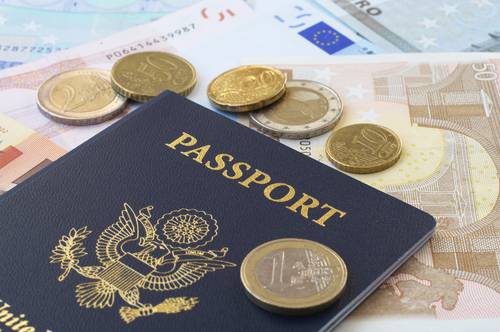Travel Medicine

Student Health Center offers care to students who are traveling abroad, including physical exams, advice, and immunizations as needed. Before you travel, schedule a travel medicine appointment to make sure you are prepared for your trip.
Your travel medicine visit
- Schedule an appointment by calling (251) 460-7151.
- Please allow at least 4-6 weeks before your departure in order to have enough time for all vaccinations to be completed. Some preventative treatments can be done on shorter notice.
- It is critical that you have your immunization records with you (or already in our records) for the visit with the provider. If you have any forms that we need to complete, you will need to bring those with you as well.
Before you leave
Check the CDC website to get information on the country you are visiting. Read about any epidemics or outbreak in progress. Read about water and food precautions. The CDC site will also give you information on the general immunizations you need and any additional vaccinations needed for that specific country. Some vaccinations need to be given weeks before departure, so do not wait. Make an appointment as soon as you know where you will be going, so any needed vaccines can be given in the appropriate time frame.
Immunization and testing
All the following shots should be up to date:
- Measles, Mumps, and Rubella (MMR) (Series of 2 shots)
- Tetanus and Diphtheria (Td) – within the past 10 years or 5 years if you will be doing work outside around soil or rusted material
- Hepatitis B (series of three shots)
- Individual countries may have HIV testing or vaccination requirements to get a visa or enter the country.
- Tuberculosis (TB) screening after returning is a good idea if you are visiting an area where TB is known to occur.
Polio
An additional dose of vaccine is required in Africa, Asia (East and Southeast), the Middle East, the Indian subcontinent and the majority of the New Independent States of the former Soviet Union.
SHC can provide immunizations for Hepatitis B, Hepatitis A and oral Typhoid Vaccine. Polio and Yellow Fever immunizations can be obtained at the Mobile County Health Department.
Malaria
Some medication for malaria must be taken before, during and after your trip in order to be effective. Use of insect repellant decreases your chances of contracting malaria. Different strains of malaria are prevalent in different regions of the world, and not all medications are effective in preventing or treating some strains.
Medications
If you are taking prescription medication, you should keep the medication in its original container from the pharmacy, which will have your name, the medication name, dose, and the name of the practitioner who prescribed the medication. Do not transfer any medication into any unmarked container. You may also ask to have a written letter or prescription from your physician verifying this medication was prescribed by a licensed practitioner and is necessary for medical reasons. You should calculate the amount of medication you will need while you are away, and bring enough so you do not run out. Some countries prohibit certain kinds of medication such as ADD/ADHD medicines or controlled substances, so make sure to research the medication laws where you will be traveling. Emergency contraception and birth control pills may be illegal to purchase or carry in some Islamic countries. Persons with diabetes need to know each country’s regulations on needles and should have a note from their provider stating they have diabetes and should be able to carry needed supplies (including syringes) with them.
Food and Water
The number one cause of illness in travelers is from food and waterborne diseases. Diseases from food and water can cause diarrhea, vomiting, fever and liver disease (hepatitis). The CDC has more tips on how to stay healthy abroad. Some suggestions include drinking only bottled or boiled water or carbonated drinks in cans or bottles (and not using ice), not using tap water to brush your teeth, and only eating thoroughly cooked food or fruits and vegetables you have peeled yourself. Avoid street vendor food or dairy products unless you know they have been properly pasteurized. Do not handle animals, especially monkeys, dogs and cats.


